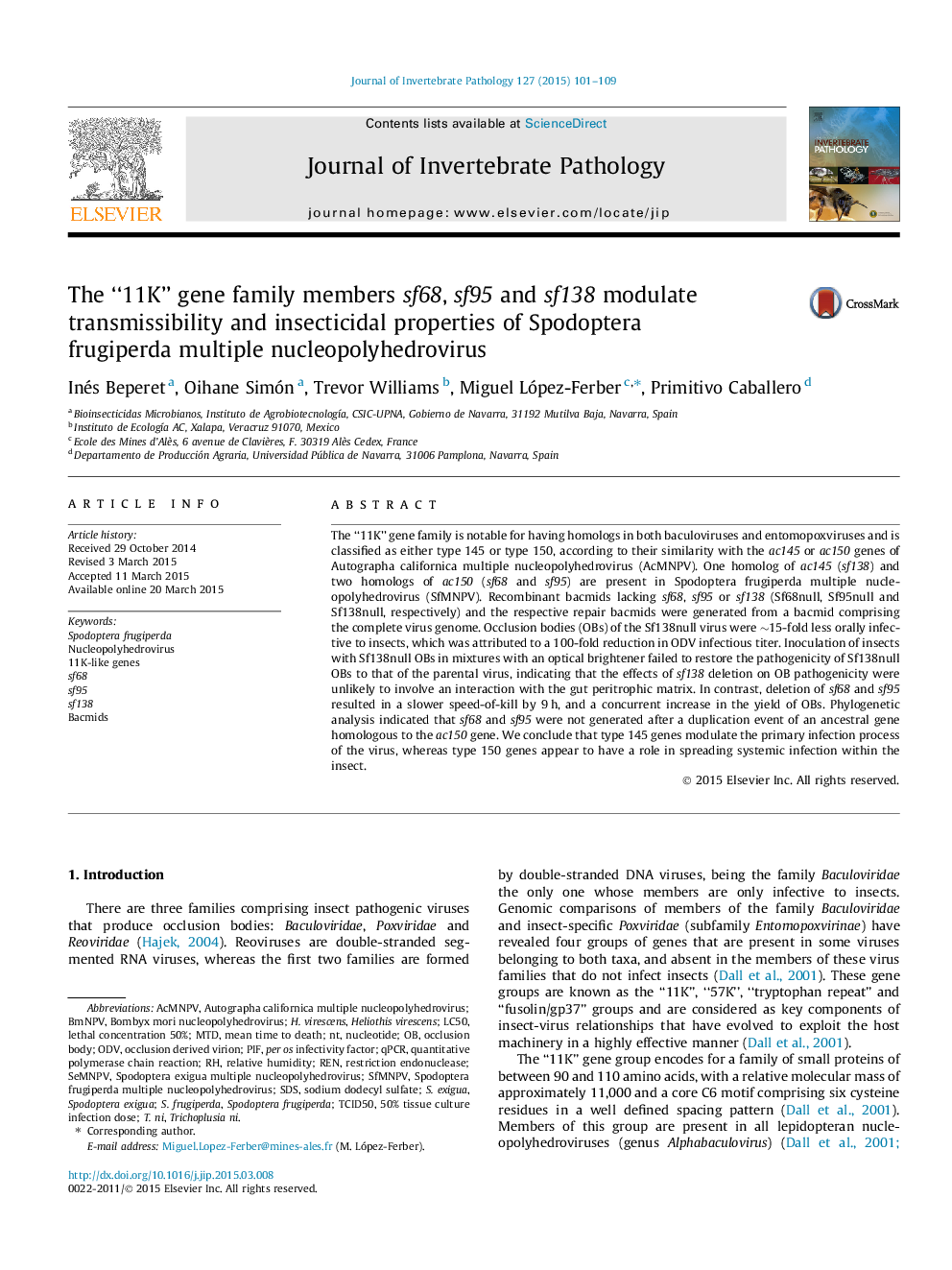| کد مقاله | کد نشریه | سال انتشار | مقاله انگلیسی | نسخه تمام متن |
|---|---|---|---|---|
| 4557646 | 1628225 | 2015 | 9 صفحه PDF | دانلود رایگان |

• Sf68, sf95 and sf138 genes were deleted from a SfMNPV bacmid.
• Sf138 deletion resulted in reductions in oral pathogenicity (LC50) and ODV infectious titer.
• Addition of an optical brightener failed to restore the pathogenicity of Sf138null OBs.
• Deletion of sf68 and sf95 resulted in a slower speed-of-kill and an increase in the production of OBs.
The “11K” gene family is notable for having homologs in both baculoviruses and entomopoxviruses and is classified as either type 145 or type 150, according to their similarity with the ac145 or ac150 genes of Autographa californica multiple nucleopolyhedrovirus (AcMNPV). One homolog of ac145 (sf138) and two homologs of ac150 (sf68 and sf95) are present in Spodoptera frugiperda multiple nucleopolyhedrovirus (SfMNPV). Recombinant bacmids lacking sf68, sf95 or sf138 (Sf68null, Sf95null and Sf138null, respectively) and the respective repair bacmids were generated from a bacmid comprising the complete virus genome. Occlusion bodies (OBs) of the Sf138null virus were ∼15-fold less orally infective to insects, which was attributed to a 100-fold reduction in ODV infectious titer. Inoculation of insects with Sf138null OBs in mixtures with an optical brightener failed to restore the pathogenicity of Sf138null OBs to that of the parental virus, indicating that the effects of sf138 deletion on OB pathogenicity were unlikely to involve an interaction with the gut peritrophic matrix. In contrast, deletion of sf68 and sf95 resulted in a slower speed-of-kill by 9 h, and a concurrent increase in the yield of OBs. Phylogenetic analysis indicated that sf68 and sf95 were not generated after a duplication event of an ancestral gene homologous to the ac150 gene. We conclude that type 145 genes modulate the primary infection process of the virus, whereas type 150 genes appear to have a role in spreading systemic infection within the insect.
Figure optionsDownload as PowerPoint slide
Journal: Journal of Invertebrate Pathology - Volume 127, May 2015, Pages 101–109